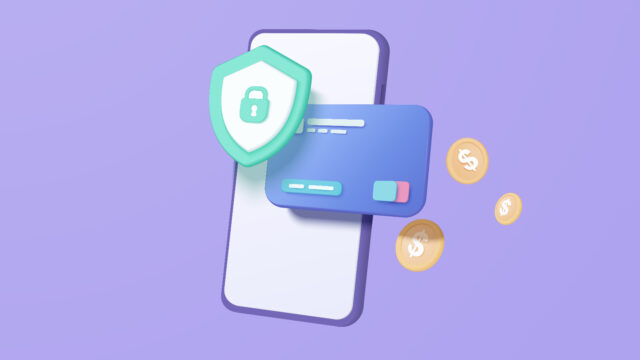Steps to take to keep your financial information secure
Every day, there seem to be new risks to our personal financial information, so it's important to learn a few tips to keep it safe from fraudsters.

Kenya is a highly digitised economy, with more and more citizens turning to mobile and internet banking. This has led many Kenyans to fall victim to cybercrimes and online fraudsters. For example, last year, banking fraud detectives arrested 22-year-old Nelson Kipkemoi for allegedly hacking 481 unsuspecting Kenyans’ bank accounts and making away with KShs. 45 million. Financial institutions haven’t been spared either. In 2020, KCB Bank stopped hackers who’d been trying to steal KShs. 2 billion.
According to the Kenya National Bureau of Statistics (KNBS), cyber threats rose by 142%, from 139.1 million in 2020 to 339.1 million in 2021. It is hard to quantify how much hackers have stolen as banks don’t readily provide this information. However, you can protect yourself from scams such as the Nigerian Prince’s emails, which are intended to obtain your personal information, at the very least.
These are the steps to ensure that your financial information remains secure.
Minimise your digital footprint
For your financial information to be secure, limit the exposure of your financial and personal information to a minimum. There are two ways to do this: If your credit card issuer can provide it, request for a one-time virtual credit card number, which is a limited-use code that’s tied to your credit card. For all your online accounts and transactions, activate two-factor authentication.
Enable multifactor authentication
Google’s two-step verification system provides its users with a second layer of sign-in. This method also prevents widespread cyberattacks. Multi-Factor Authentication (MFA) for your financial information online provides multiple barriers and keeps hackers at bay. Some of the best MFA software solutions include SISCO Duo Security, OneLogin, OneSpan, and RSA SecureID Access. Additionally, enable ‘failed login’ notifications. These are smoke detectors that alert you to hackers’ potentially harmful activity on your account.
Do your online banking at home
Some of us do our banking while queuing, in a matatu on our way home, or at the airport as we wait for our flights. Resist the urge to do this, as this isn’t the right time to log in to your account to make payments. When accessing your money, please do not trust the Wi-Fi at coffee shops, airports or even matatus.
Research! Research! Research!
You should know with whom you’re trusting your money and personal information. When choosing online payment and accounting platforms, do your research. What data will they store on their platform? What measures are they taking to ensure their clients’ data is secure? Find out whether the platform has options for users to restrict access to the information and if there is a time frame that the data will be stored.
Use a password management tool
If your password is ‘123456’ or ‘password’, change it immediately. If you have about 20 logins, it’s difficult to remember all the passwords, which should be long, strong and secure. You can commit them to memory if you are a mnemonist. If not, you need a password manager to secure your digital life. Encrypted password management tools such as Bitwarden, Dashlane, 1Password and NordPass are inexpensive, simple and invaluable. They will help you create better passwords and be less vulnerable to password-based attacks.
Get a cybersecurity insurance cover
To cover all your bases, get this cover, which, hopefully, you’ll never have to use. Shop around for the best cover, and as you research, read more on the current best practices to enable you to make the best decisions to lower the risk of getting hacked. For example, Britam’s Cyber Liability Insurance protects against cyber threats and new techniques thieves use to steal and interrupt data.
Contact your bank directly
Have you ever been contacted via email or text by someone posing as an agent of a bank or telco to which you’ve subscribed? Scammers usually use this trick to obtain your personal information. If you ever get such messages or a phone call, contact your bank directly to weed out potential phishing scams and thieves. Otherwise, you will end up as one of the Nigerian Prince’s victims.
Use a Virtual Private Network (VPN)
When paying bills, use a VPN to secure your transactions. Instead of a public network, such as the internet, VPNs use private networks to encrypt data and add an extra layer of protection. VPNs such as ExpressVPN and NordVPN ensure that your identity and location remain anonymous by masking your IP address.
Take reasonable precautions to ensure that your financial information is safe; otherwise, you will be living in constant fear of being hacked. Don’t give out your verification information to anyone; always be alert for schemes.
